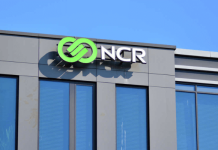On Monday, the Lagos State Ministry of Innovation, Science, and Technology (LAMIST) announced the completion of the first phase of a project to significantly cut the cost of Internet access.
Mr Olatunbosun Alake, Commissioner of LAMIST, made this known during the 2024 Ministerial Press Briefing in Lagos. During the briefing to mark the first year of Gov. Sanwo-Olu’s second term, Alake stated that it has constructed 2700 km of fibre duct across the state.
“Phase II of the project includes an additional 3,300 kilometers of uniform fiber ducts being constructed across the state. “We will use the duct to reduce the cost of internet connectivity in the state,” the commissioner stated.
Alake noted that the administration has installed 450 intelligent cameras and number plate recognition cameras around the state. All of these technologies are designed to help with traffic control in Lagos, eliminate guessing, and assure better city administration,” he added.
The commissioner stated that the government’s most recent accomplishment was the initiation of a cybersecurity initiative to improve digital safety and defend the state’s infrastructure from cyber attacks.
He stated that the cybersecurity effort was part of a larger strategy to strengthen overall security and governance in the state. According to Alake, the initiative, which is being carried out in collaboration with prominent cybersecurity businesses and an international organisation, would give the state with access to technology and knowledge.
According to him, providing the state with technologies and expertise will enhance its capacity to defend its technologies against sophisticated cyber threats. Alake also said that to boost the state’s infrastructure and data capacity, the government was building a tier 3 data centre in partnership with the private sector to facilitate the delivery of government services to residents.
He said that this technology would not only improve government efficiency and reliability of services, but also foster economic and technological advancement. He added that the technology would attract investment and position Lagos as the technological hub of West Africa.
“We have embarked on sensitisation and awareness workshops for all heads of accounts, procurement, planning, legal officers, and medical directors among others in 43 Ministries, Departments and Agencies (MDAs) across the state.
“We have also established 70 data protection officers in various MDAs,” Alake said. He emphasised the objectives of the data protection compliance project, saying it was to safeguard the rights of persons to data privacy.
The commissioner said that the data compliance project would foster the safe conduct of transactions involving the exchange of personal data and prevent manipulation of personal data. He stressed that it would ensure that Nigerian businesses remained competitive in international trade with best practices.
Alake said that the Lagos State Science Research and Innovation Council (LASRIC) under LAMIST had played a significant role in funding startups, research and development programmes. He said the council’s aims included improving services and the quality of life of citizens through research outcomes, promoting innovation awareness and managing the research and innovation fund.
The commissioner added that the council also fostered local and international collaboration to address local and global challenges. According to him, LASRIC has funded over 60 tech startups, and over 50 researchers with over N800 million grants given out.
He noted further that the Lagos State Residents Registration Agency (LASRRA) Project was the most technologically advanced identification ecosystem in the nation. Alake said it promoted financial inclusion because, on registration, those without a bank account automatically got included.
He said that the LASRRA card was a one-stop shop card and had over six million registration records. The commissioner in an interview, however, noted that funding was a major challenge for the ministry.













